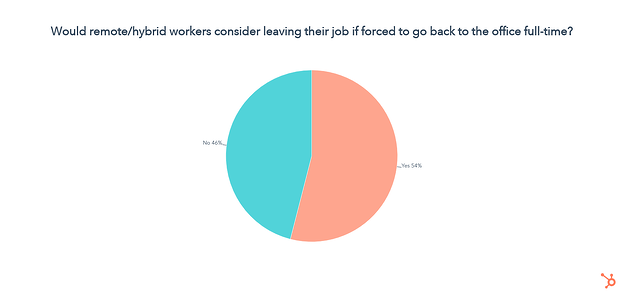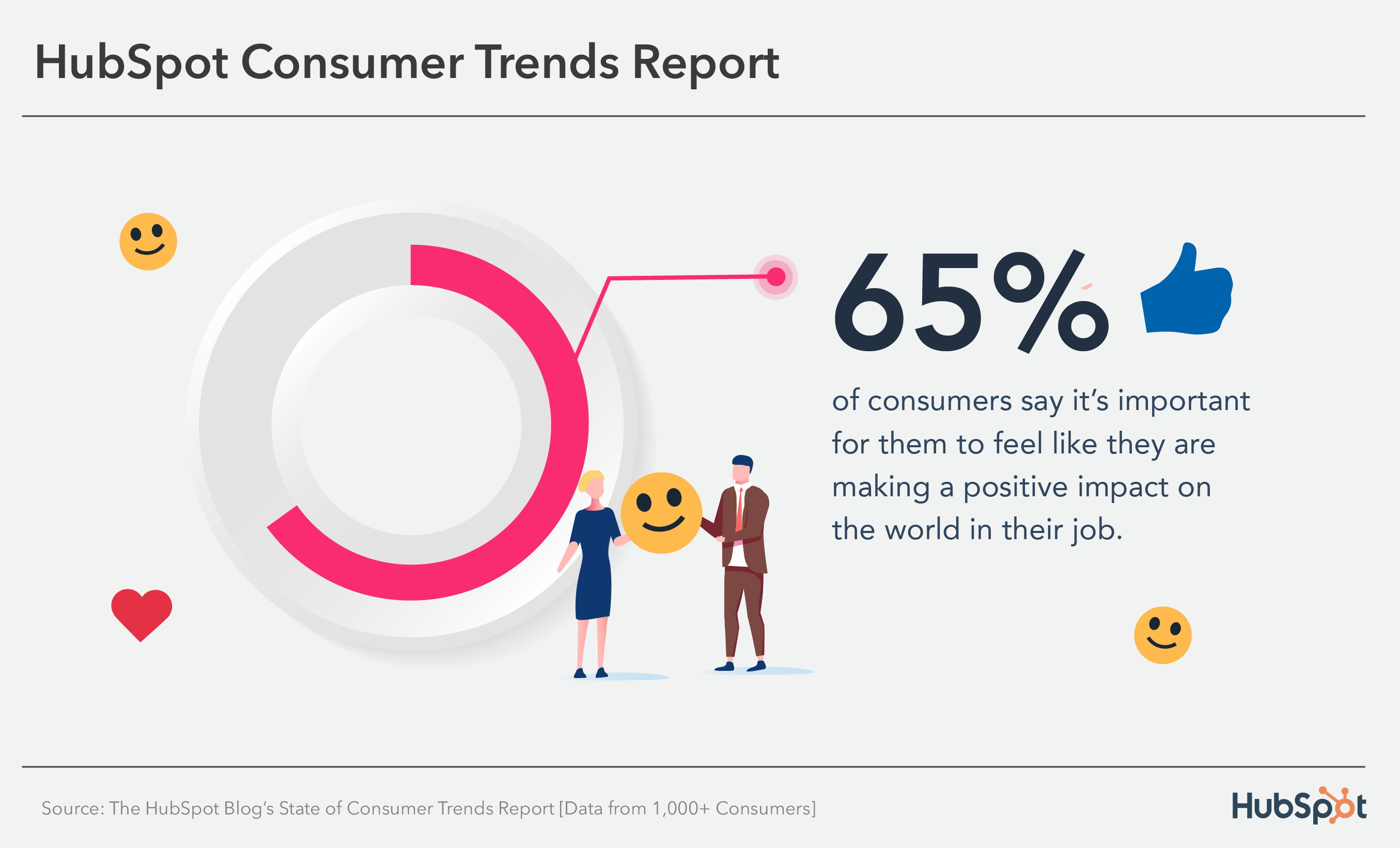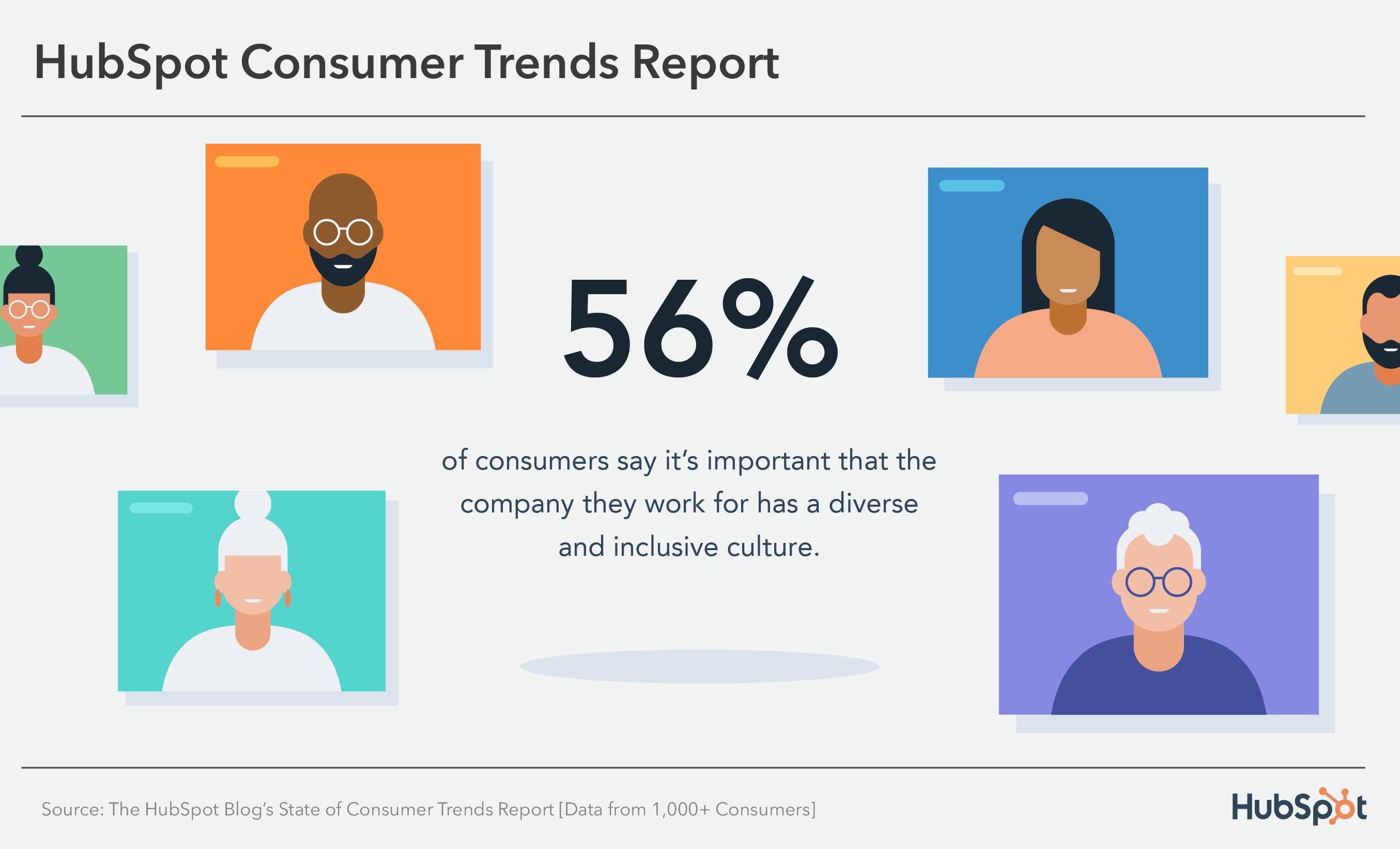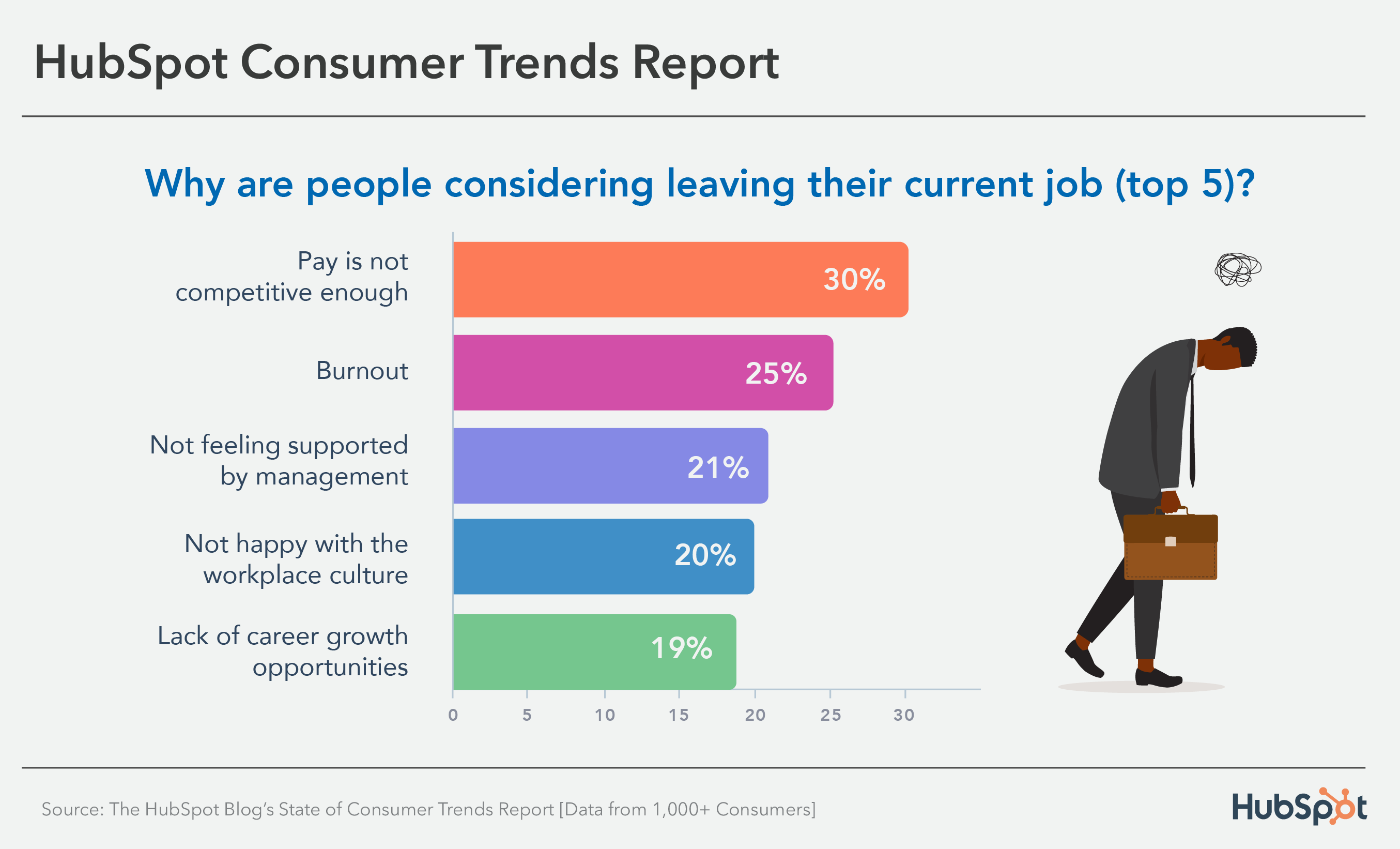The past two years have brought on changes in the workforce, especially when it comes to how people do their jobs and where they do their jobs.
In this post, we’ll discuss new data from HubSpot’s State of Consumer Trends Report that shows exactly how consumers feel about work in 2022 and what they expect from their employers.
How Consumers Feel About Work in 2022
In 2022, consumers want businesses to continue to offer the remote and hybrid work models that increased in popularity in 2020. The State of Consumer Trends survey found that 40% of respondents are in the office full-time or nearly full-time, 32% are in remote roles, and 28% are in hybrid roles.
Even though people are returning to the office, 54% of remote and hybrid workers expect to continue to be able to work their preferred model, and more than half would consider leaving their role if they were required to return to the office full time.

Consumers also want the businesses they work for to understand what’s important to them in how they work, and 65% of those surveyed said they want to feel like they’re making a positive impact with the work they do.
 More than half of respondents also said they want to work for companies with a diverse and inclusive work culture. Valuable ways to speak to this desire and help employees feel seen in the workplace are offering employee resource groups for people to find community and encouraging healthy work/life balance habits.
More than half of respondents also said they want to work for companies with a diverse and inclusive work culture. Valuable ways to speak to this desire and help employees feel seen in the workplace are offering employee resource groups for people to find community and encouraging healthy work/life balance habits.
 Regarding job satisfaction, 70% of survey respondents said they are satisfied with their current job, and 12% are dissatisfied.
Regarding job satisfaction, 70% of survey respondents said they are satisfied with their current job, and 12% are dissatisfied.
People who stay in their current roles do so because of competitive pay, having a healthy work/life balance, and having a flexible work schedule, and those considering leaving do so because pay isn’t competitive, they experience burnout, and they don’t feel supported by management.

With this in mind, potential economic instability could change how these trends look. Let’s go over what this could mean.
How the Recession Could Impact Today’s Workforce Trends
Although there have been no official declarations of recession, businesses preparing for potential economic instability will likely make decisions that preserve assets. This ensures that there is enough money to keep the company afloat, and many of these decisions initiate changes in investments, budgets, and even in the workforce and hiring practices.
For example, Meta, Twitter, and Uber are a few companies that have updated their hiring processes. Dara Khosrowshai, Uber CEO, said hiring will become a privilege, and the business will “Be deliberate about when and where we add headcount.”
Economic changes could also mean that businesses are more strict about how employees work. However, even if companies are more strict, consumers likely won’t change their desire for flexibility — some might even be more inclined to work remotely or hybrid if it could mean cutting costs for things like childcare or transportation.
Nela Richardson, Chief Economist at ADP and co-head of the ADP Research Institute, says that, in the face of a possible recession, companies will need to invest more in their people to stay competitive in the market.
However, the state of employment could change quickly if we were to enter a recession. So, the best way to keep employees satisfied is to understand their needs and what they want in the workforce. Many trends in the HubSpot Blog survey may become even more critical as economic instability can be stressful.
For example, workers might search for more support in their work environment, whether from managers, connecting with people like them in employee resource groups, or having a healthy work-life balance.
In addition, during the COVID-19 pandemic, people wanted businesses to support causes outside of work that contributed to the betterment of society, such as people laid off as businesses closed — a recession can cause these same issues that employees are passionate about.
Understanding Your Employees Is Critical
Employee satisfaction significantly impacts your business’s bottom line, so it’s essential to know who they are, what they stand for, and what they want from their employers. Having this information also makes it easier to retain them, whether during a period of economic prosperity or uncertainty.
If you want to learn more about consumer trends and their preferences for things like where they prefer to shop or how they feel about crypto and NFTs, check out the State of Consumer Trends Report.
![]()


